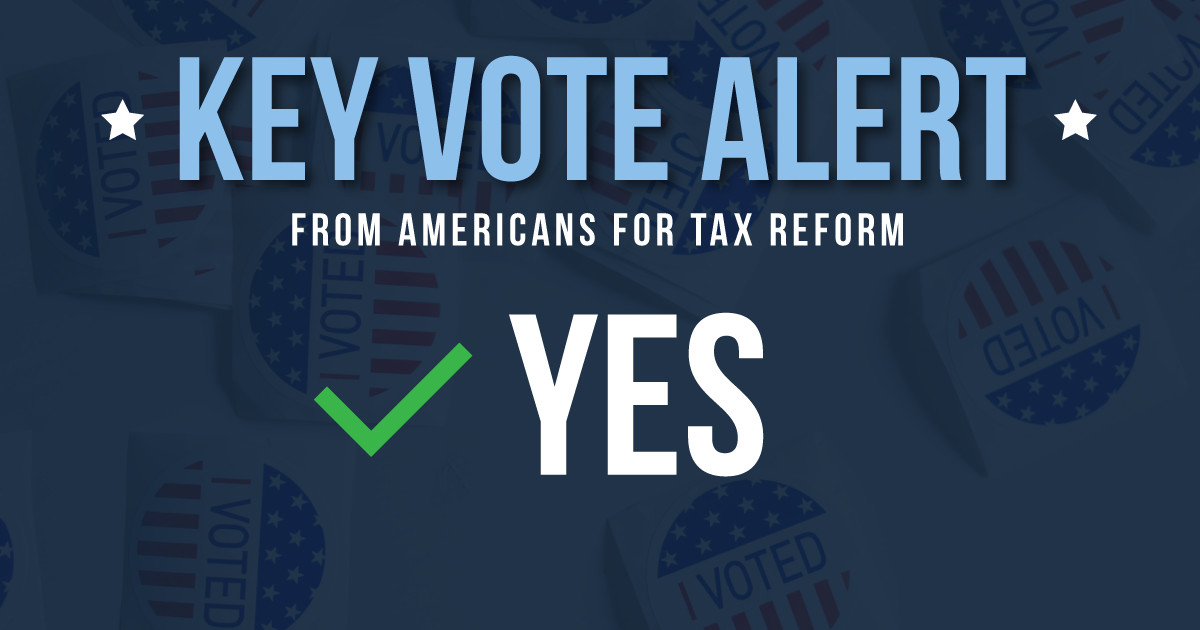
Americans for Tax Reform encourages all members of Congress to vote “YES” on H.R. 1, the Lower Energy Costs Act of 2023.
The Lower Energy Costs Act, introduced by Majority Leader Steve Scalise (R-La.), is a holistic package of policies that House Republicans see as key to America’s energy future. The package consists of more than twenty pieces of legislation that will increase domestic energy production, reduce regulatory burdens, and lower energy costs.
The bill would lower the direct costs of energy production imposed by government by repealing onerous provisions such as the natural gas tax, a new tax increase imposed last year as part of Democrats’ so-called “Inflation Reduction Act” (IRA). The natural gas tax was estimated by the Congressional Budget Office to cost to taxpayers $6.5 billion. This tax hike on American energy would be paid by consumers in the former of higher energy bills. Estimates suggest that the tax, if left in place, could result in a 17 percent cost increase to the average family’s natural gas bill.
In addition to the natural gas tax repeal, H.R. 1 would eliminate administrative fees on energy production included under the Mineral Leasing Act and roll back excessive royalties imposed on oil and gas production under the IRA.
H.R. 1 would also lower the costs that consumers pay at the pump by streamlining energy permitting and increasing lease sales. The bill requires that the Secretary of the Interior “shall immediately resume quarterly onshore oil and gas lease sales in compliance with the Mineral Leasing Act” and ensures that a minimum of four onshore oil and gas lease sales per producing state and two offshore lease sales occur each fiscal year. Several roadblocks to the oil and gas permitting process would be eliminated under the bill’s permitting reform provisions, allowing companies to more easily boost production in order to lower market energy prices.
The efforts to bolster domestic energy production would be a welcome change from the Biden administration’s record, which began with an executive order at the start of his presidency banning new oil and gas leasing on federal lands and waters. Despite the White House placing blame for lack of supply on oil producers, Biden has leased fewer acres offshore and on federal lands for drilling than any president since World War II. With the end of Democrat trifecta control and the entrance of a Republican House majority, the Biden administration can finally be taken to task for its inaction.
H.R. 1 also includes two resolutions expressing the sense of Congress: First, Congress would make clear that the federal government should avoid imposing “overly restrictive regulations” on energy exploration or production and should not impose “any restrictions” on the export of petroleum products. Second, Congress would express its disapproval of Biden’s decision to revoke the permit for the Keystone XL pipeline, one of his very first acts as president.
Finally, the bill aims to protect America’s energy security by strengthening critical mineral supply chains through greater domestic production and diversification. As of 2019, the United States was fully dependent on imports for 14 critical minerals and over 75 percent dependent on imports for an additional ten critical minerals. For the crucial subcategory of “rare earth minerals,” the U.S. currently sources 80 percent of its supply from the People’s Republic of China. H.R. 1 would make America less dependent on China through these mineral sourcing reforms and an included prohibition on Chinese Communist Party (CCP) affiliates obtaining a stake in domestic oil and gas projects––building on earlier progress by House Republicans to ban sales from the U.S. Strategic Petroleum Reserve to CCP-affiliated entities.
Americans for Tax Reform last week signed onto a coalition letter alongside more than two dozen organizations in support of H.R. 1.
Members of Congress should vote “YES” on H.R. 1 to lower energy costs, strengthen the U.S. economy, and ensure energy security.

